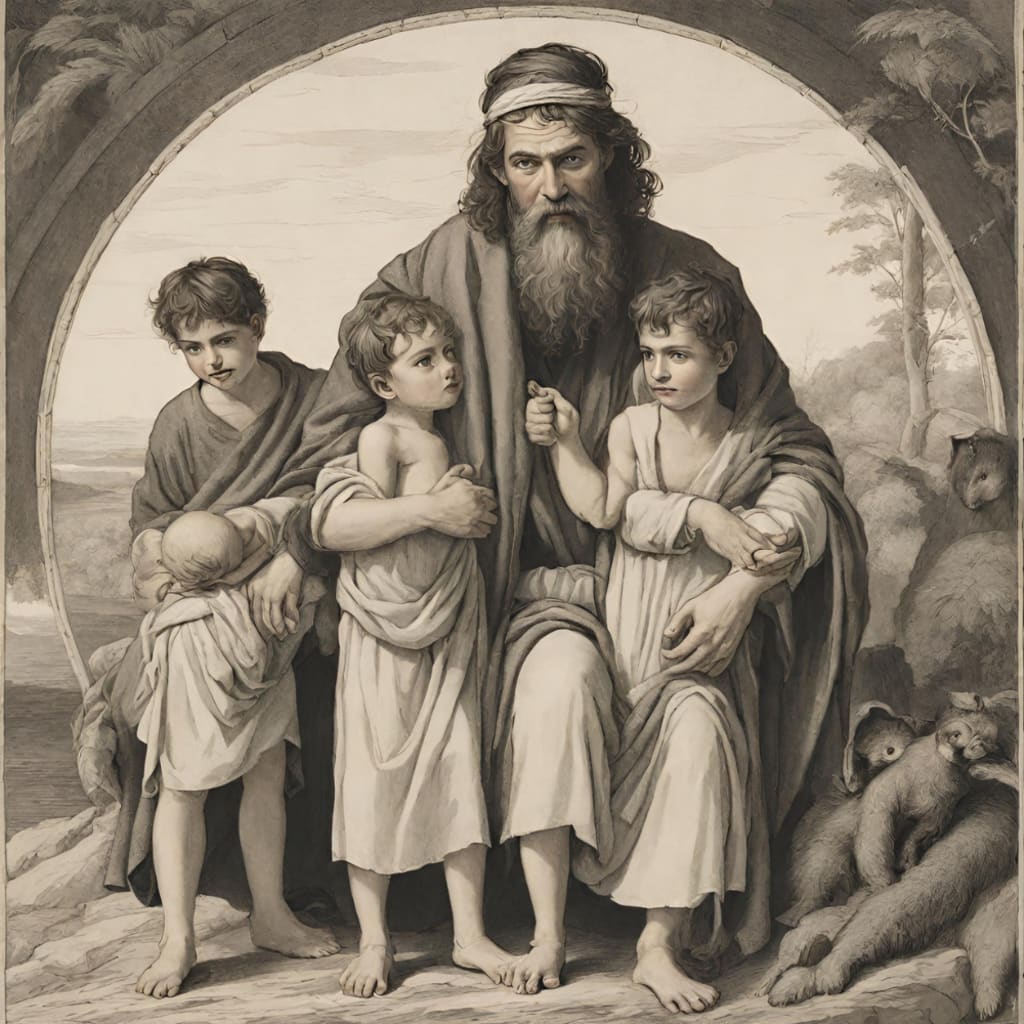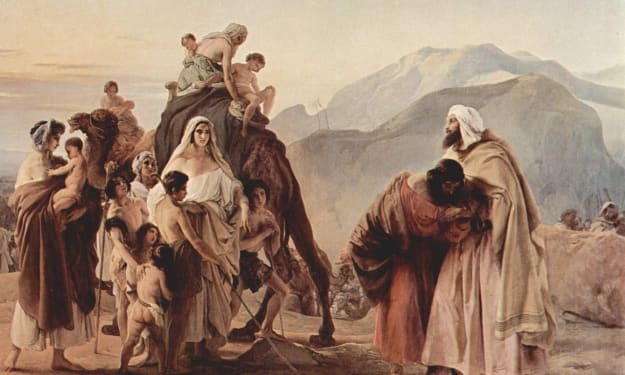How Many Children Did Noah Have? Truth Revealed!
Delve into the fascinating story of Noah and his family

The biblical account of Noah and the Great Flood is one of the most iconic and enduring stories in religious and cultural history. Central to this narrative is Noah's family, particularly the number of children he had. In this article, we will explore the question: how many children did Noah have? We will delve into the identities of his sons and their significance in the story of the Ark and the flood that reshaped the world.
Who Was Noah?
Noah is a biblical figure widely recognized in Judaism, Christianity, and Islam as a key character in the story of the Great Flood. He is primarily known for his role in the biblical narrative described in the Book of Genesis in the Hebrew Bible (Old Testament), the Quran, and other religious texts.
According to the biblical account, Noah was a righteous man who lived in a time when humanity had become corrupt and morally decadent. God, displeased with the wickedness of mankind, decided to send a catastrophic flood to cleanse the Earth. Noah was chosen by God to build an ark to save himself, his family, and a pair of every kind of animal from the impending deluge.
The ark that Noah constructed became a means of preserving life during the flood, which lasted for 40 days and 40 nights. After the waters receded, Noah and those on the ark emerged as the survivors and repopulated the Earth. God made a covenant with Noah, symbolized by a rainbow, promising never to flood the Earth in such a manner again.
How Many Kids Did Noah Have?
Noah had beloved three sons: Shem, Ham, and Japheth. Noah's sons are considered to be the ancestors of all the people in the world today.
1. Shem:
Shem, the eldest of Noah's three sons, plays a crucial role in the biblical narrative and subsequent genealogies. His name, which means "name" or "renown," reflects his significance in biblical history. Shem is considered the ancestor of several Semitic peoples, including the Hebrews. In the biblical account, Shem's righteous character and lineage are emphasized. His descendants are believed to have contributed to the rich tapestry of the ancient Near East and played pivotal roles in the history of the region.
2. Ham:
Ham, Noah's second son, is another central figure in the story. His descendants are associated with various peoples, including the Egyptians, Canaanites, and other North African and Middle Eastern groups. Ham's name carries a complex meaning in the biblical narrative. While he was not necessarily characterized as wicked, his actions or those of his descendants had consequences, including the curse of Canaan. This narrative has led to various interpretations and discussions in religious and scholarly circles.
3. Japheth:
Japheth, the youngest of Noah's sons, is known for being the ancestor of several Indo-European peoples. His descendants are traditionally associated with regions to the north, including parts of Europe and Asia. Japheth's name means "enlargement," reflecting the belief that his lineage spread to diverse and extensive regions. While he may not be as prominent in biblical narratives as Shem, his descendants have had a significant impact on the historical and cultural diversity of the world.
Conclusion
The story of Noah's children, Shem, Ham, and Japheth, is an integral part of the biblical narrative of the Great Flood and the preservation of life on Earth. Their descendants are believed to have played pivotal roles in the development of various nations and cultures across the ancient world. Understanding their significance enriches our appreciation of the enduring legacy of the biblical account and its impact on religious beliefs and cultural narratives.
About the Creator
Exotic History
Welcome to Exotic History, where the past comes alive with vibrant stories and intriguing narratives. We are your gateway to a world of captivating historical accounts, adventures, and forgotten tales that span the globe.






Comments (2)
Great work!
Great work! Good job!